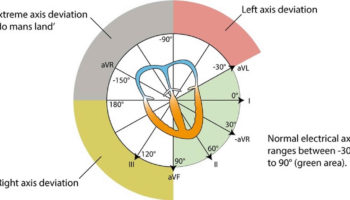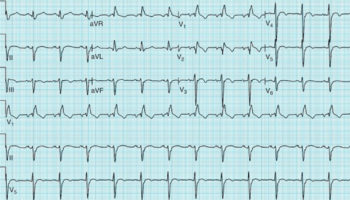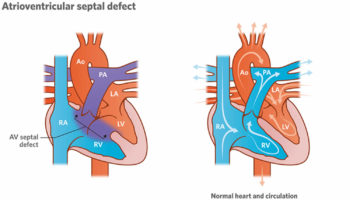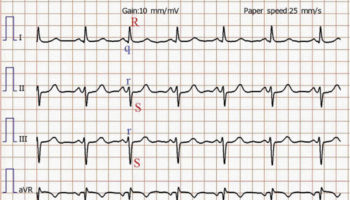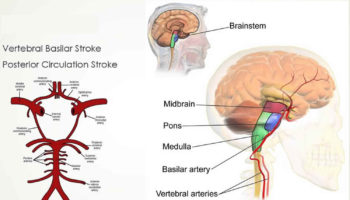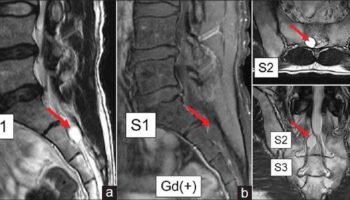Left axis deviation In electrocardiography, left axis deviation is a condition where the mean electrical axis of ventricular contraction of the heart lies in a
Bifascicular block Bifascicular block is a conduction delay or “block” below the atrioventricular (AV) node in two of the three fascicles (the right bundle branch
Transposition of the great arteries Transposition of the great arteries (TGA) also called dextro-transposition of the great arteries (D-TGA), is a serious but rare heart defect
Mitral valve regurgitation Mitral valve regurgitation also called mitral valve insufficiency, mitral regurgitation, mitral incompetence or leaky mitral valve, is a disorder in which the mitral valve
Atrioventricular canal defect Atrioventricular canal defect also called atrioventricular septal defect or endocardial cushion defect means there is a large hole in the septum or
Ectopic beats Ectopic heartbeat also called premature (early) or extra heartbeats, is when the heart either skips a beat or adds an extra beat ,
Left anterior fascicular block Left anterior fascicular block or LAFB also known left anterior hemiblock, is a heart disease in which scarring occurs in a
Wallenberg syndrome Wallenberg syndrome also known as lateral medullary syndrome or the posterior inferior cerebellar artery syndrome, is a neurological disorder is associated with a
Todd's paralysis Todd's paralysis also called Todd's paresis is a transient focal weakness of the hand, arm or leg which follows partial seizure activity within
Tarlov cyst Tarlov cysts also known as meningeal or perineural cysts or sacral nerve root cysts, are cerebrospinal fluid-filled sacs that most commonly are found
